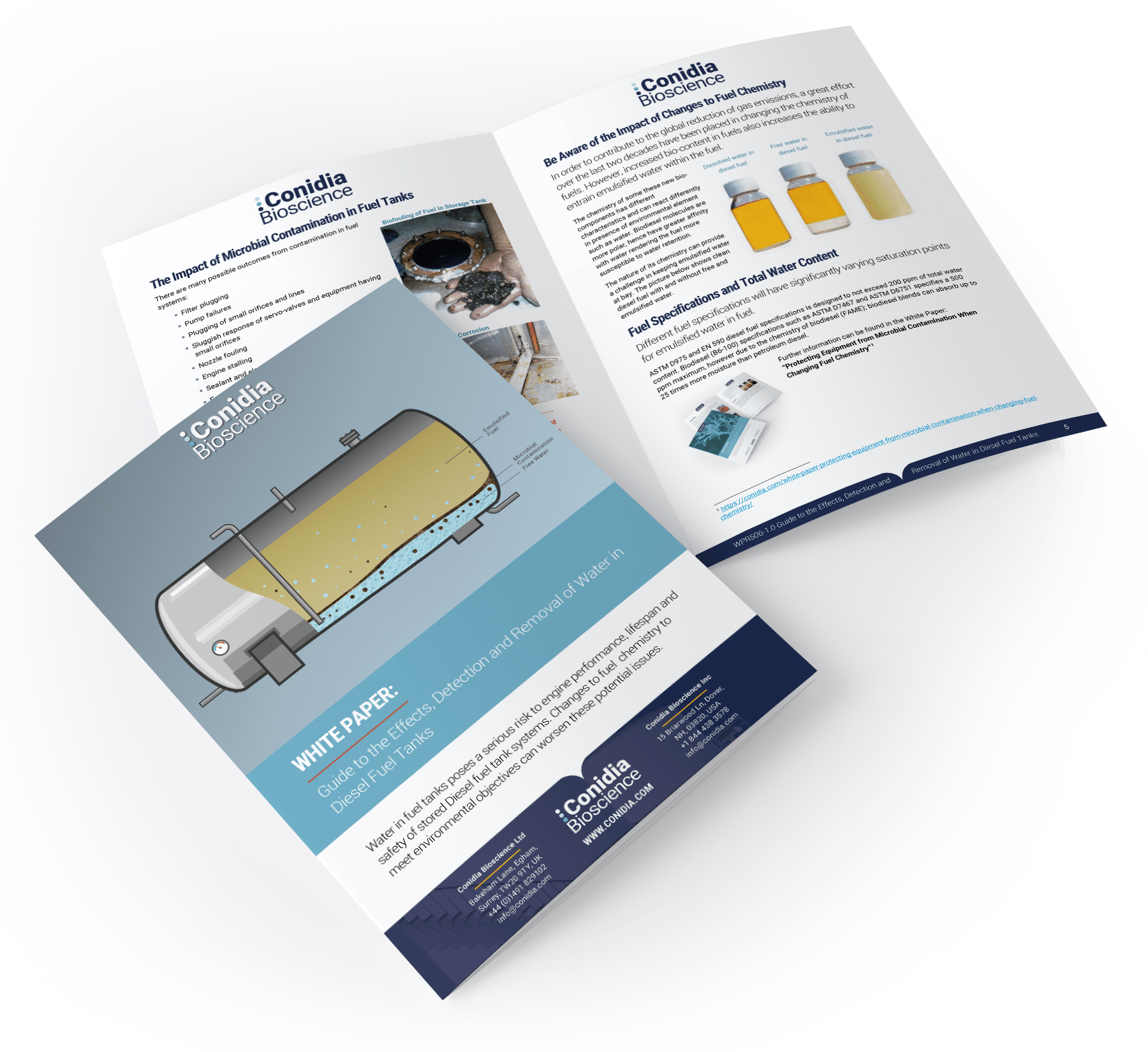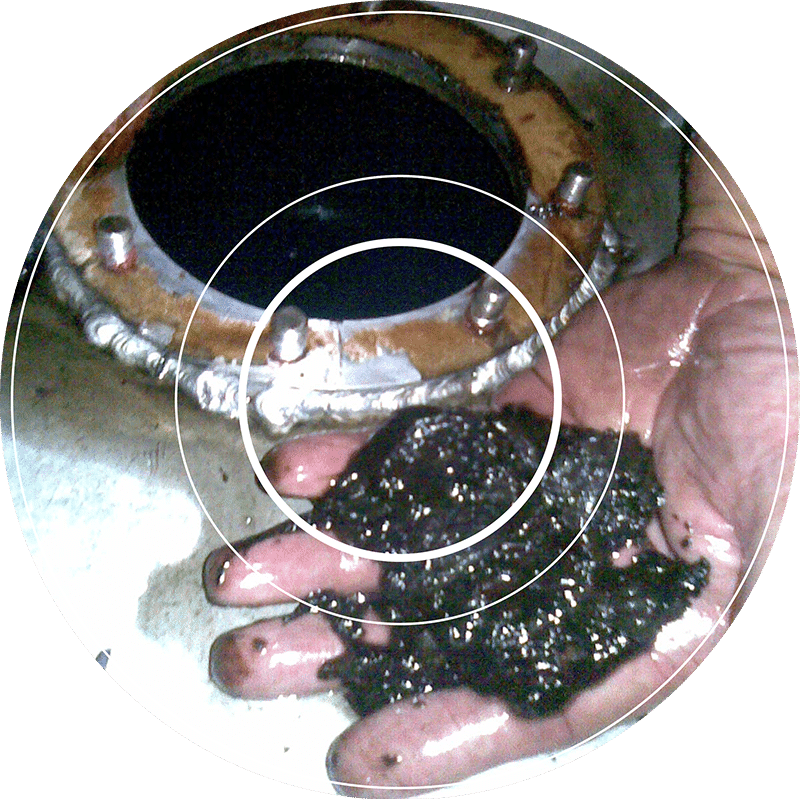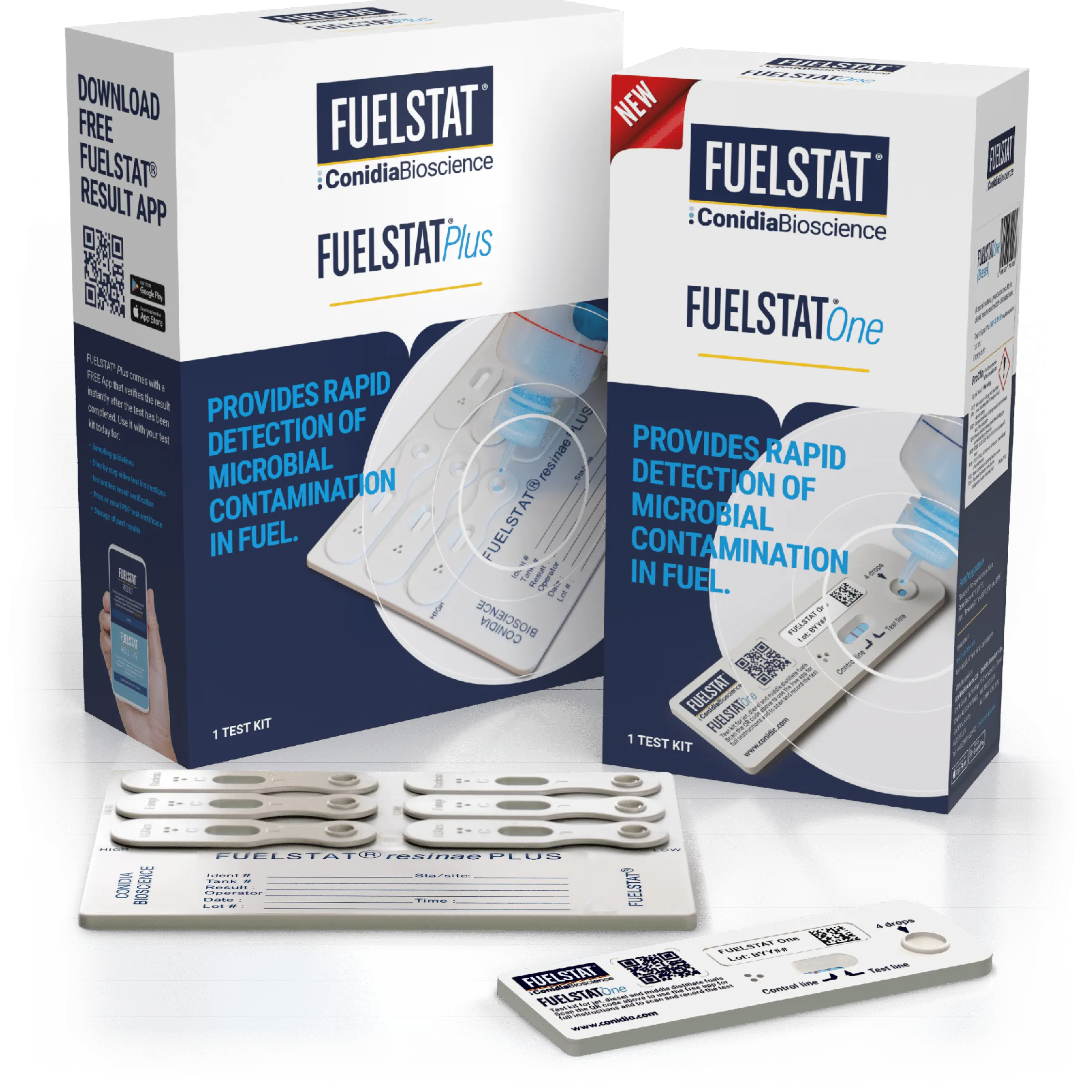Water is the enemy of stored Diesel in fuel tanks
Water in fuel tanks poses a serious risk to engine performance, lifespan and safety of stored Diesel fuel tank systems. Changes to fuel chemistry to meet environmental objectives can worsen these potential issues.
Fuel stored for prolonged period in storage tanks combined with certain environmental conditions such as hot and humid temperature or large temperature swing between seasons present the right condition for the generation of water via condensation, with the potential for the generation of microbiological growth, tank corrosion, poor efficiency, and engine failures.
HOW DOES MICROBIAL FUEL CONTAMINATION OCCUR?
Because they are ever-present, it’s easy for them to enter fuel during transport and storage. Microorganisms that thrive and do damage to fuel systems are generally aerobic, meaning that they require oxygen, which they can get from water, to survive and thrive. They get nourishment from the hydrocarbons in the fuel.

Water enters fuel in several ways, but mainly through condensation that occurs when the temperature in and around water changes. Microbes are microscopic, i.e. so small that they cannot be seen by the human eye. That means that even the smallest amount of water, a single droplet, is enough to help microbiological diesel fuel contamination occur and persist.
These microorganisms can develop in fuel systems, and hotter conditions can lead them to grow faster. When you factor in humidity as well, the risks of diesel fuel contamination get higher in regions closer to the equator.
Companies that use or supply diesel fuel need to manage the risks of diesel bug on an on-going basis. In addition, recent changes to diesel fuel make this task even more important today.
This FREE White Paper discusses the issues of water ingress and the problems caused, methods of detection and avoiding future problems. Find out how Aquafighter® water removal filters and FUELSTAT® test kits can be part of the solution for a cost efficient fuel management programme.

Aquafighter® Water Removal Filters






FUELSTAT® Microbial Contamination Fuel Test Kits


